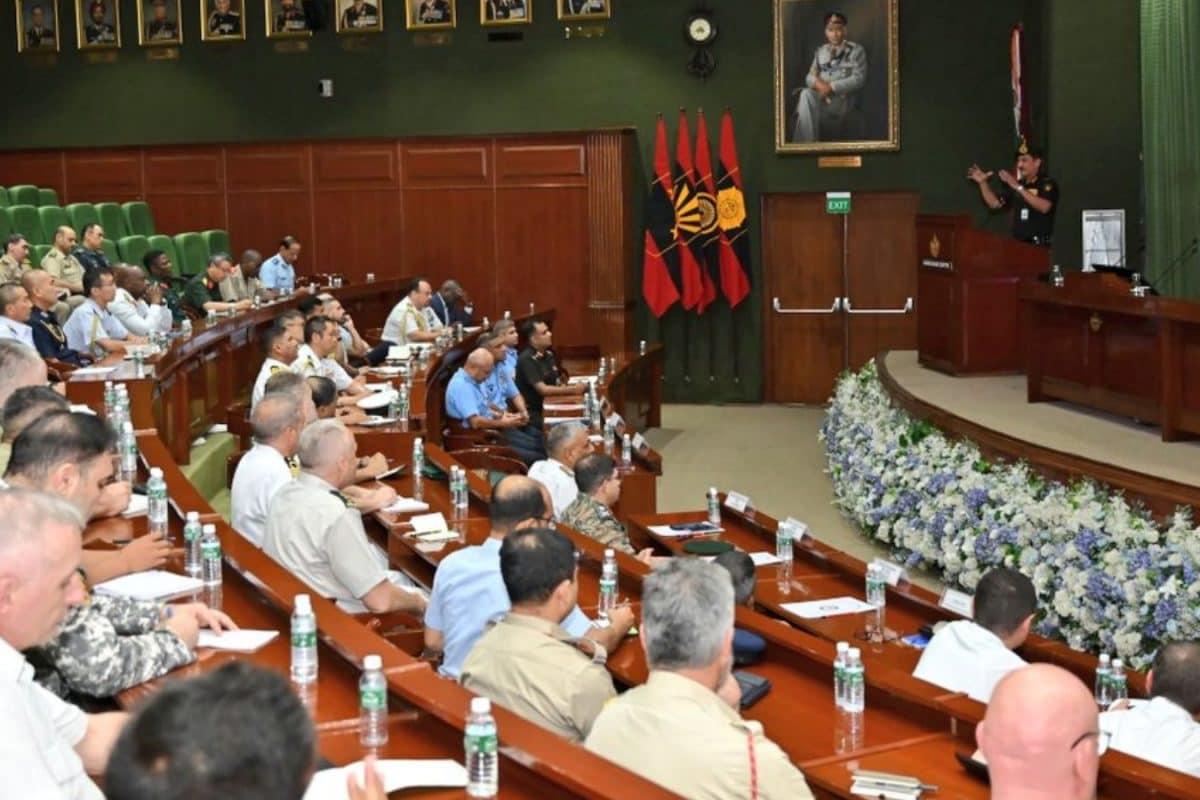

The relationship between India and Pakistan has undergone a significant shift, marked by a recent military briefing concerning the success of Operation Sindoor. This operation, executed by the Indian Armed Forces, targeted terrorist camps within Pakistan and Pakistan-occupied Kashmir. The briefing, led by top military officials, provided key insights into the strategic and tactical aspects of the operation, signaling a potential "new normal" in how India addresses cross-border terrorism.
Operation Sindoor commenced in early May 2025, as a response to a deadly attack in Indian-administered Kashmir that resulted in the loss of many civilian lives. India accused Pakistan of backing the gunmen, which Islamabad denied. The operation involved precision strikes on nine terrorist camps, eliminating key figures affiliated with Lashkar-e-Taiba (LeT) and Jaish-e-Mohammed (JeM), including Maulana Yusuf Azhar, who was wanted for the IC-814 hijacking. According to sources, the targets also included individuals involved in radical indoctrination, weapons training, and coordinating terror attacks in Jammu and Kashmir.
The success of Operation Sindoor has been attributed to the precision and professionalism of the Indian forces. Air Marshal AK Bharti highlighted that the operation achieved its desired objectives while inflicting heavy damage on Pakistan's air defense system and various defense installations. He also emphasized that India's airbases remain operational and ready to counter any potential misadventure by Pakistan. The Indian defense system effectively intercepted and neutralized Pakistani missiles and drones, showcasing the country's battle-proven defense capabilities.
Lt Gen Rajiv Ghai reported that 35-40 Pakistani soldiers were killed during artillery exchanges with Indian troops. India, unfortunately, suffered five casualties during the operation. Over 100 terrorists were neutralized in the precision strikes. The operation also exposed critical gaps in Pakistan's air defense preparedness. Indian forces bypassed and jammed Pakistan's Chinese-made air defense systems, and in a swift operation, Indian jets carried out the mission without any losses.
The military briefing emphasized that India's primary objective was to dismantle terrorist infrastructure. Air Marshal AK Bharti noted that the Pakistani military chose to support these elements, which forced India to expand its response. This intervention by the Pakistani military was described as "a pity". Despite the damage inflicted on Pakistan's military infrastructure, Indian airbases continue to be fully operational and ready for future missions.
The successful execution of Operation Sindoor has led to a shift in the global narrative on Kashmir and India-Pakistan relations. For the first time, the global perception has focused on terrorism, moving away from the earlier lens of Kashmir. The world has acknowledged India's targeted strikes on terror infrastructure as a legitimate act of defense.
Prime Minister Narendra Modi has stated that his government will not hesitate to use force to neutralize terrorist camps in Pakistan, calling it a "new normal" in relations with its neighbor. This reflects a more assertive stance against cross-border terrorism and a willingness to take proactive measures to safeguard India's security.
However, some experts caution that this "new normal" could lead to a dangerous cycle of escalation. The lowering of the threshold for military conflict could make the situation more precarious, with even accidental triggers potentially escalating into a war-like situation. Despite a ceasefire agreement, the underlying challenges in India-Pakistan relations persist. These include conflicting claims over territory and accusations of ceasefire violations. The Indus Water Treaty, a key water-sharing pact between the two countries, also remains a point of contention.
Despite these challenges, the Director Generals of Military Operations (DGMOs) of India and Pakistan have held talks over a hotline to discuss the ceasefire and ensure that both sides adhere to their commitment. Foreign Secretary Vikram Misri is scheduled to brief a parliamentary committee on the India-Pakistan conflict, highlighting the importance of addressing these complex issues through diplomatic channels.